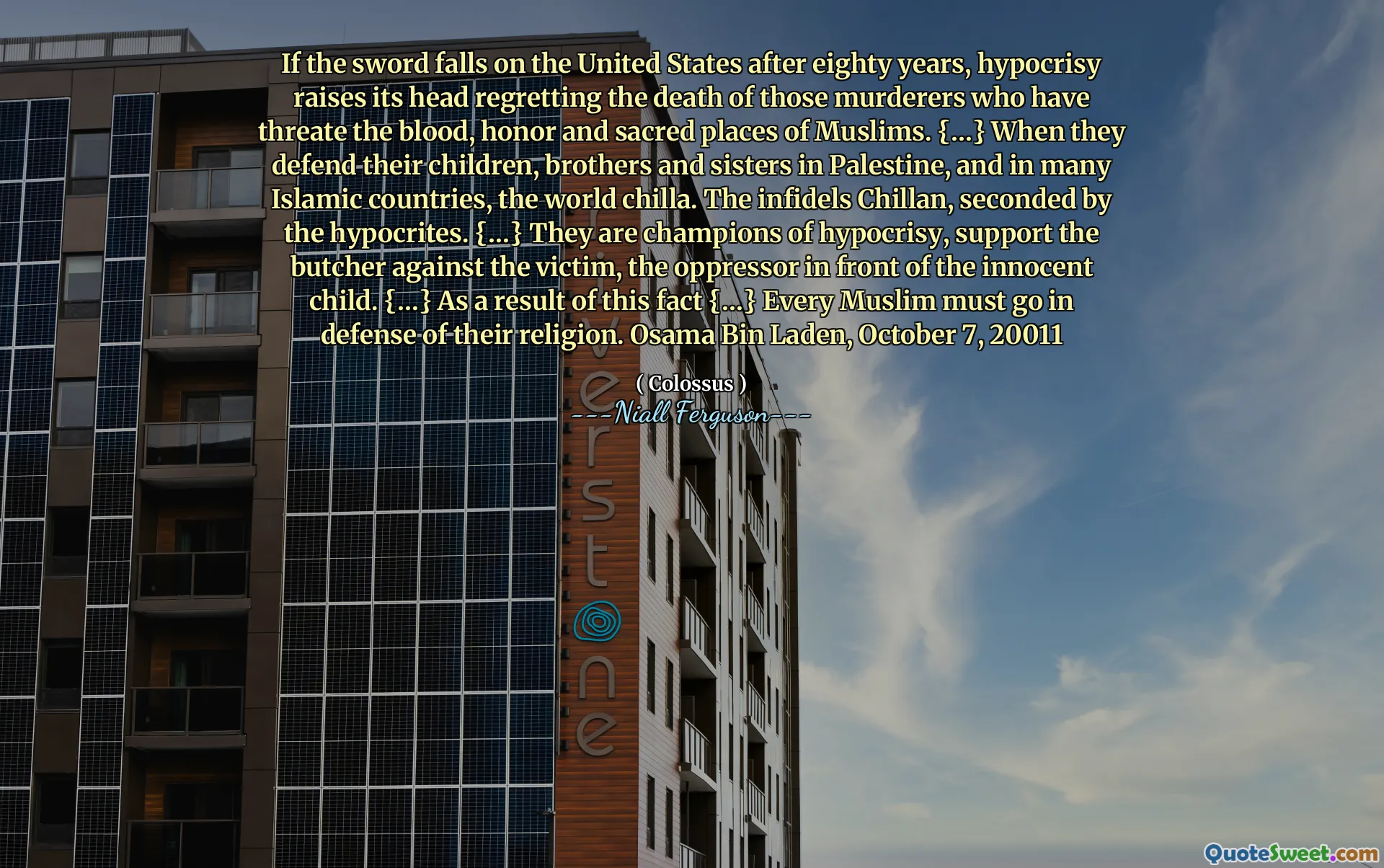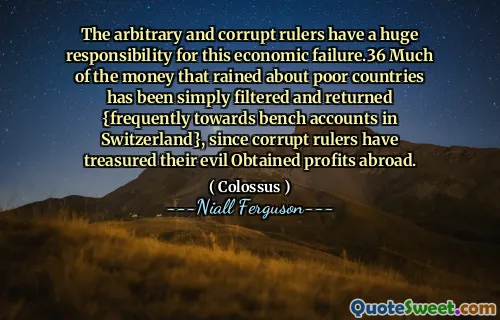
If the sword falls on the United States after eighty years, hypocrisy raises its head regretting the death of those murderers who have threate the blood, honor and sacred places of Muslims. {…} When they defend their children, brothers and sisters in Palestine, and in many Islamic countries, the world chilla. The infidels Chillan, seconded by the hypocrites. {…} They are champions of hypocrisy, support the butcher against the victim, the oppressor in front of the innocent child. {…} As a result of this fact {…} Every Muslim must go in defense of their religion. Osama Bin Laden, October 7, 20011
Osama Bin Laden's statement reflects his perception of the hypocrisy in global responses to violence against Muslims. He argues that while the United States has historically engaged in violence and oppression, it only expresses regret when it serves its interests. He criticizes the world for being silent when Muslims defend themselves, portraying this silence as a form of complicity. This narrative positions Muslims as victims and questions the integrity of those who support oppressors rather than the oppressed.
Bin Laden's call to action suggests that all Muslims have a duty to defend their faith and communities against perceived injustices. He frames the situation as a moral obligation to confront those he labels as hypocrites, portraying the struggle as one of life and death, wherein Muslim self-defense becomes essential. His rhetoric seeks to unify and mobilize individuals under a shared religious identity in opposition to external threats, emphasizing a stark divide between oppressor and victim.











